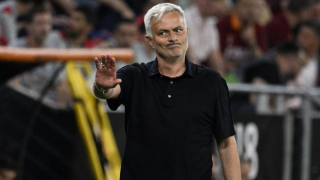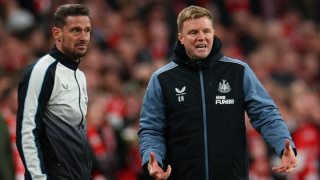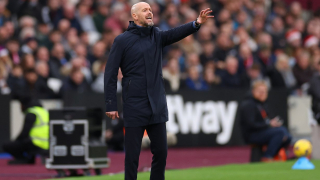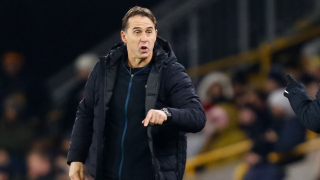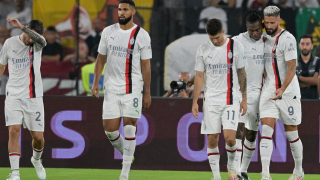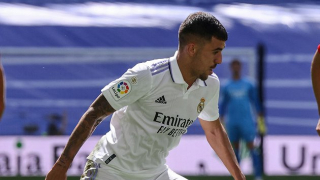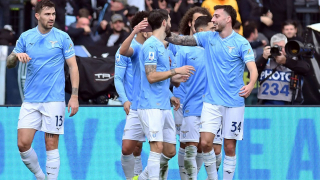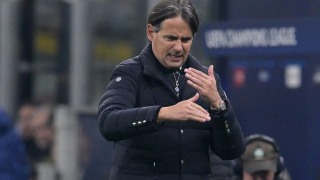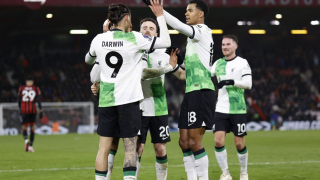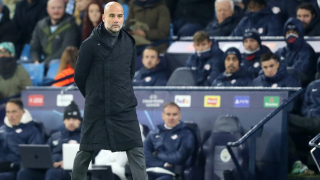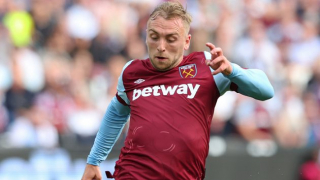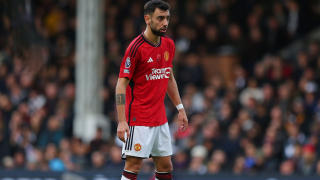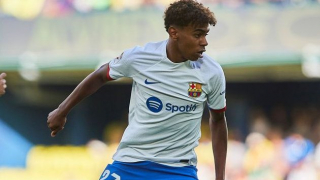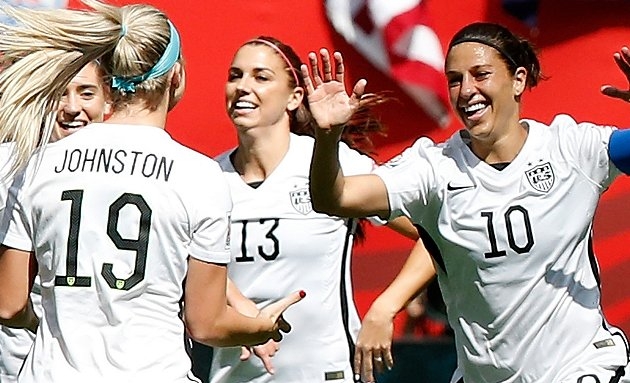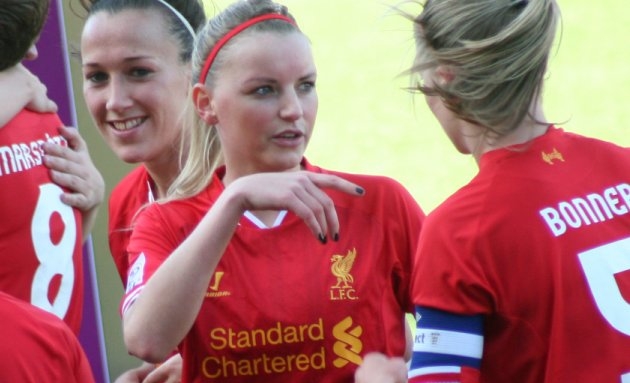This week, we present some news, including new franchises, for the two summer amateur/semi-professional leagues in North America, the WPSL and UWS. We also discuss some recent news regarding the USL, which ran the W-League for two decades, and some possible implications regarding the professional game in North America.
North American Summer Amateur Leagues Changes—WPSL and UWS
The Women's Premier Soccer League (WPSL) will field a record 131 teams, with 27 expansion sides, for the 2020 summer season, its 23rd consecutive campaign. There are teams in 35 states and one Canadian province and the WPSL is the largest women's soccer league in the world, with a mission to provide more developmental opportunities for women in soccer. The expansion class, with 25 new clubs plus two returning clubs from United Women's Soccer (UWS), features household names within United States soccer, with established men's sides including the Tampa Bay Rowdies (USL Championship), FC Davis (NPSL) and Florida Elite Soccer Academy (USL 2) among the group of new WPSL clubs.
Four women's clubs moved to the WPSL from the United Women's Soccer, including the past two UWS champions – the Houston Aces (2018) and LA Galaxy OC (2019) – as well as El Paso (Texas) Surf and the Colorado Pride (Colorado Springs). The Aces, founded 9 years ago, played in the WPSL from 2012-15 and finished as the league national finalist in 2013 and 2014. Houston also won the 2013 USASA National Women's Open tournament and, more recently, the 2018 United Women's Soccer championship.
Pascal Piazza, the Aces' president and co-founder, explained the move by saying, "The Houston Aces look forward to returning to the WPSL. We believe that this step is a necessary step to advance women's soccer in Texas and throughout the United States. It is the next logical progression for us since our inception in 2012. We look forward to the local and national competition that may be found only in the WPSL. We welcome this opportunity. We thank the WPSL for inviting us to participate and gladly accept this invitation. We wish all the best in 2020. The Aces will play in the Red River Conference – South Division with AHFC Royals (Houston), San Antonio Surf, San Antonio Blossoms and Lonestar SC (Austin).
LA Galaxy OC, which will feature a rebranded club name and logo in the coming months, won the 2019 UWS title with a 1-0 victory against Calgary Foothills WFC.
Two conferences have split into divisions beginning in 2020. The Mountain Conference has split into the Rockies and Wasatch Divisions in part to the Pride, Colorado Rush, Broomfield Blast and Boise Cutthroats FC joining as expansion clubs. The Coastal Conference, consisting of Los Angeles area clubs, features two six-team divisions.
Two clubs have switched conferences to better suit their geographic regions. Pittsburgh Hotspurs SC, formally Steel City FC, has moved to the Ohio Valley Conference, and PSA Wildcats (Trenton, New Jersey) has filled the Hotspurs' place in the Mid-Atlantic Conference. In Pittsburgh, the Hotspurs SC and Steel City FC have merged and re-branded under the Hotspurs name ahead of the 2020 WPSL season. Stephanie Harrison, founder and president of Steel City FC explained. "This is a great move for our team, for it allows our organization to grow within an already established soccer community. At Steel City FC, we have always been firm believers that sports have the power to unite, inspire, and empower women in a way little else does. We know the Pittsburgh Hotspurs believe the same and will continue on our mission to provide female athletes in our area the opportunity to experience the positive benefits of athletics in a competitive and professional environment."
This announcement comes after the launch of the club's men's team in the National Premier Soccer League (NPSL) in March of 2019, making the Pittsburgh Hotspurs the first development program that provides a full pathway for youth through adult players for both women and men in the Pittsburgh area. The club will maintain a strong focus on homegrown talent while looking at opportunities to help Pittsburgh players play internationally and give international players an opportunity to play in Pittsburgh.
Among some of the new expansion franchises include the Boise, Idaho Cutthroats FC, the first ever WPSL club from the state of Idaho. Hector Palacios is the Cutthroats owner, and Terry Adams is the Director of Administration and Operations. Palacios initially founded the Cutthroats as a UPSL men's club in 2017. Adams said, "We believe that this step is a necessary step to advance women's soccer in Idaho, the Pacific Northwest and throughout the United States. It is the next logical progression for us since the start of the Boise Cutthroats FC in 2017."
In Newark, New Jersey, NJAFC will play at a stadium to be announced later. The club has a men's side that began competing in the United Premier Soccer League this past fall (2019) season.
The Soccer House Academy FC will play its first matches at Darcy Stadium in Rockville Centre, New York, providing more opportunities for female soccer players in the country's largest metropolitan area.
Santa Maria Synergy SC (Santa Barbara, California area) and Alta California SOL of Santa Barbara have both joined the WPSL for 2020.
In the Midwest, the league has a storied name joining the women's game after a long history of success on the men's amateur side—the Milwaukee Bavarians.
Bavarian club president Peggy Boris said, "We are very excited to join the Women's Premier Soccer League. The addition of a WPSL team to our youth development model means Bavarian Soccer Club now has a complete player development pathway. This addition allows us to provide our female membership and Wisconsin-based soccer players with the best programs and competition from around the U.S. and a pathway to the professional ranks."
Founded in 1929, the Bavarian Soccer Club is one of the country's oldest soccer clubs. It serves boys and girls with development programs for players' ages five all the way through adult competitive soccer. The Bavarians' adult teams have won eight national championships in UPSL, amateur and open cup play, and a record for Wisconsin-based clubs. The Bavarian Soccer Club has produced hundreds of players and coaches who have gone on to play and teach the game in community-based programs throughout the NCAA Division I, II, III, NAIA, Major League Soccer, international leagues, and U.S. National Teams. The club becomes the second Milwaukee metro club in the league joining the Milwaukee Torrent. It also has another Wisconsin rival with the Green Bay Glory.
This reporter knows the Milwaukee Bavarians club well from living in the city some years back when the city was one of the soccer meccas during the post-World War II years, as soccer struggled for acceptance versus the growth in popularity of baseball, football, basketball and even hockey in Northern cities. The Bavarians do everything first rate and they will sink resources and effort into building a consistent and competitive women's side in the WPSL.
Another new Midwestern side, the Minnesota Thunder, takes the name of a historic club in the community from 1990 in various minor leagues at the time and which won an A-League men's title in 1999 and even had a W-League franchise in 2005, until the club folded in 2009. The club will play in the Central Region's North Conference against fellow Minneapolis-St. Paul based clubs Salvo SC, Fire 98 SC and Maplebrook Fury. It will also play matches against Mankato United Soccer Club, Rochester United FC and Dakota Fusion FC.
The San Diego Strikers have joined the Women's Premier Soccer League as an expansion club ahead for 2020 and will play home matches at Cathedral Catholic High School in San Diego, the venue of former WPSL founding club the San Diego SeaLions, who were champions in 2013 when they defeated the Houston Aces in the Final. The club will play in the Pac South – San Diego Division against ASC San Diego and City SC (formerly LA Galaxy – San Diego), two rival youth clubs with established WPSL sides.
The El Paso Surf, the top women's soccer club in West Texas, has moved to the Women's Premier Soccer League from United Women's Soccer (UWS) ahead of the upcoming 2020 season. By joining the WPSL, the largest women's soccer league in the world, the club strengthens its mission in providing the best opportunities, competition and experiences for women's soccer in the El Paso community. David Lopez, Surf Executive Director and President, explained, "As the leading organization in El Paso, we took a long look at how we can continue our mission to our players. The WPSL is a much better fit to meet our goals. The WPSL has some of the best players in the country playing in the league every summer. The league will continue to provide the opportunity for our players to play at the highest level of competition right here at home in El Paso."
In Marietta, Georgia, Southern Soccer Academy (SSA) enters the league for its first season in 2020. Simon Davey, Executive Director of SSA, will be the club's General Manager. The Swansea, Wales native holds a UEFA Pro License and has been with the organization since 2012. SSA will play its inaugural season home matches at North Paulding High School in Dallas, Georgia. It will then move into a soccer-specific stadium for the 2021 season at its Marathon Park facility in Marietta. The club becomes the second Atlanta metro club in the league, joining rival Peachtree City MOBA.
Florida Elite Soccer Academy in Jacksonville will play in the South Region of the Sunshine Conference in 2020.
2020 WPSL Expansion Clubs:
- Alta California Sol
- Internacional Club Atletico CA/A (Orange County, California, with two separate teams with different coaching staffs)
- Internacional Club Atletico CA/G
- Santa Maria Synergy
- FC Davis
- Breakaway FC
- San Diego Strikers
- Las Vegas Legends
- SouthStar FC U23
- Minnesota Thunder
- Boise Cutthroats FC
- Colorado Rush
- Broomfield Burn (Colorado)
- Savannah SC (South Division)
- SC United Bantams (Colombia, South Carolina)
- Sporting South Walton (Florida)
- Southern Soccer Academy (Georgia)
- Florida Elite Soccer Academy
- Sunrise Prime FC (Florida)
- Tampa Bay Rowdies
- Milwaukee Bavarian SC
- The Soccer House Academy FC
- North Jersey Alliance
2020 Expansion Clubs via UWS:
- LA Galaxy OC Women
- El Paso Surf
- Houston Aces
- Colorado Pride
2020 Returning Clubs:
- LA Villa (sat out 2019 season)
2020 Departing Clubs:
- Players SC
- San Diego SeaLions
- San Diego Surf
- Primero de Mayo (Sacramento, California)
- Players North Soccer Club (Reno, Nevada)
- Texas Titans (Cypress/Katy)
- Tti Bluebonnets (Houston)
- FC Dallas
- FC Wichita (Kansas)
- Puerto Rico Pride (Orlando, Florida)
- Florida Tropics SC (St. Petersburg, Florida)
- Albuquerque FC
- Beach Futbol Club (Alondra Park, California)
- Westside Timbers (Hillsboro, Oregon)
- Rangers Ladies FC (Fairhope, Alabama)
- AAFC Lumberjills (Ann Arbor, Michigan)
UWS Adds 6 Teams and a Second Tier League
In the other summer league, the United Women's Soccer (UWS) league has expanded into the Southeastern U.S., with Unity FC (Winter Haven, Florida), Orlando FC Royals and Puerto Rico Pride (also Orlando, Florida) scheduled to play in 2020. Two of the three teams, Unity F.C. and Orlando, played provisionally in UWS during the 2018 season.
Unity F.C. was founded in 2018 and are based in Winter Haven. They are the 2019 Florida State Classic Champions. The mission of the club is to provide the opportunity for female players to play elite level soccer and further their collegiate and professional aspirations at minimal or no cost to the players.
The Orlando FC Royals were founded in 2017 and are based in Castleberry. They are owned and operated by Marcus Phil Don, a former Trinidad & Tobago Men's National Team player. The club's mission is to give an opportunity for players with professional/national team aspirations to realize their goals and also provide a training ground for top level club and college players during the summer.
Puerto Rico Pride FC joins UWS after playing the past two seasons in the WPSL and is co-owned by Alberto Ramos and Brenda Báez. Ramos, a former professional player and assistant with the Puerto Rico Women's National Team, will serve as the head coach of the team. The team will play its home games in 2020 at Lake Brantley High School in Altamonte Springs. Ramos said, "We are excited about this new direction of quality and professionalism that UWS offers. We have players who belong to the Puerto Rico Women's National Team who are integrated into this team. The idea with this development team is to give a platform, in this case, [to] Puerto Rican and Hispanic players and to any woman who wants to come to the United States to study. We try to locate them in schools and universities."
More teams are expected to join these three expansion sides in the Conference.
A fourth new club will be located in Joliet, Illinois—the Ladies Steel City F.C.—the league's first club in the state. The new Midwest Conference side will play at DuPage Medical Group Field baseball stadium this season, located in Joliet. The stadium was built in 2002 and has a seating capacity of 6,016. The team formed a partnership with the Joliet Slammers professional baseball team that play in the independent Frontier League.
Another Midwest Conference newcomer and second side in Illinois and the fifth expansion side for 2020 is MSC Peoria, who will play in East Peoria, who also have a team in the men's United Premier Soccer League. They will play at Eastside Center, which holds a capacity of 4,000, and is the home field for East Peoria Community High School.
The sixth expansion team is The City FC in Fresno California, which will compete in the Western Conference along with two California sides in the Santa Clarita Blue Heat and LA Galaxy OC, as well as two Canadian-based clubs in Calgary Foothills WFC and Queen City United SC of Saskatoon, Saskatchewan. One unique aspect of The City FC is that, through their international partners, the club has a relationship with Cordoba City Ladies FC in Spain. Cordoba City Ladies FC currently compete in LaLiga in the 4th Division and are currently in 1st place and are striving for promotion this season. Through their affiliation, TCFC has the ability to refer players to their team in Spain.
UWS Adds League Two for 2020
The UWS is launching a League Two in 2020, essentially a third tier for women's soccer in North America. It will be a developmental league primarily for the U-20 to U-23 age group but will include promotion and relegation—a first for an American professional league, though the USL men's leagues did utilize the approach in a very limited basis a few decades ago. It will also be the official league for UWS reserve teams. The season will run during the summer and teams will play matches in a regional-friendly format. UWS Commissioner Joe Ferrara Jr. explained the genesis of the league, "The concept of UWS League Two came about in discussions with not only our current membership but also with potential expansion clubs. Many of these organizations remain dedicated to a focus on player development, in which the rosters are heavily comprised of college and high school-aged players."
According to league officials, the new UWS League Two will give additional competitive experience on the pitch for players in current UWS clubs because of the Reserve Team option. It will allow added value to sponsors and establish a larger prospective player pool for teams. For new clubs, it's an opportunity to introduce themselves to the standards-driven pro-am league and a launch point for a potential UWS First Team. A UWS committee evaluates teams in the off-season and some franchises have been removed from the next season due to poor performances on the field or lack of standards off it. With League Two, the UWS can maintain their competitive balance for the top tier while not losing these clubs, some of who have defected to the WPSL.
Ferrera Jr. further explained the benefit of the new League, "We wanted a mechanism to keep them under our umbrella. If there are teams that are struggling in our league, whether it's on the field or if they are not meeting certain minimum standards, rather than just terminating them or having them go to other leagues, we thought League Two would be a perfect place for them to regroup and realign themselves and give the opportunity to get better on the field. Nobody wants a team to go winless—and nobody wants to lose a team, either."
These standards are important to the league but also to the players and coaches, driving more players from the league into professional clubs at home and abroad. The UWS says that over a dozen of its players were selected in the most recent NWSL College draft and that over 150 players have signed professional contracts worldwide since the amateur league began.
A recent example of an ex-UWS player moving abroad includes midfielder Sarah Kinzner of the Calgary Foothills (ex-University of Colorado and a Canadian youth international), who just signed with Ferencvarosi TC of Hungary's Noi Nemzeti Bahnoksag league. Ferencvarosi TC has won three of the last five Női NB I championships and lost the Preliminary Round Group F title in the 2019-20 UEFA Women's Champions League by goal differential to ZFK Spartak of Serbia. Also in the Hungarian League is former Lancaster Inferno goalkeeper Kelly O'Brien, while another goalkeeper, Kelsey Dossey—who played with the Indiana Union in the UWS and the University of Missouri—has joined Spanish club RCD Espanyol of Barcelona.
According to Ferrara Jr, the annual team operation fee for UWS is $4,500 and the League Two fee will be $1,000, with the fees collected from the latter used to help the newly promoted team or teams cover their increased costs of travel and met the minimum standards in the higher league. Newly promoted teams would not pay the more expensive league fee in their first year in the top division of the UWS.
In the new League Two, players over the age of 23 will be permitted to play in the league with a waiver; and the league will use an unlimited substitution rule during the game. The first four teams in League 2 for 2020 were announced this week and are all from the state of Michigan: Detroit Sun Reserves (their first team has played in the UWS for a few seasons), Livonia City FC (a Western Suburb of Detroit), NOSC (North Oakland Soccer Company in Rochester—just North of Detroit) and Rebels FC (Macomb County on the east side of the Detroit Metro area). More teams are expected to be announced in the weeks to come.
Is the USL looking to get back into women's football in North America?
The United Soccer Leagues made an interesting appointment last week by naming Angela Hucles as an advisor for women's soccer. Hucles played with the U.S. women's national team and won two Olympic Games goal medals; she also played in both the WUSA and WPS with the Boston Breakers. She has been a television analyst for women's games and is highly thought of in general in the sport. Her appointment caused some head-scratching though because this is the same league group, based in Tampa, Florida, that ran the semiprofessional W-League from 1995 through the 2005 season and then, with little warning, shut it down. It clearly was not a revenue generator for the USL organization which has run minor-league men's leagues during the same period and to this day, but the W-League was an important and influential early developer of the women's game in North America and was always well organized. They had some outstanding teams over the years, including the Vancouver Whitecaps, the Los Angeles/Pali Blues—the latter of which won four league crowns and appeared in a fifth final—the Washington Spirit/Freedom Reserves, Ottawa Fury and Boston Renegades. In fact, during the years when there was no professional soccer in the U.S. (2004-2008 and 2012), the W-League helped to keep the women's game growing and allowed national team members and college graduates—who wanted to extend their career—a place to be seen. On the surface, reports indicated that Hucles would be focused on women's teams connected with the USL Academy. However, other reports indicate that the USL wants to launch another Division I women's professional league to compete against the NWSL. Goodness me! If the latter reports are true, that could mean that the USL is exploring an opportunity to re-form a women's league, this time at the fully professional level. The timing is interesting as the NWSL negotiates with U.S. Soccer on further investment and valuable financial infusions from the federation while the clubs are trying to be more independent in their operations—remember that the NWSL was begun by U.S. Soccer and, though teams have individual owners, U.S. soccer operates the league and pays for U.S. National Team members to participate, which keeps these higher salaries off of individual club balance sheets. The NWSL owners want more autonomy from the federation but still desperately desire the financial contributions of the governing body. The Federation reportedly asked the USL to take over operational aspects for the nine team professional league in 2018 but the USL rejected the proposal.
Some background information on the USL is needed; it started in 1986 as a small indoor men's league in the Southwestern U.S. (primarily Texas) by Francisco Marcos, and then saw extensive growth over the years—helped in no small part by the success of the U.S. hosted World Cup in 1994—through an umbrella of leagues and a strategy of aggressive expansion, bringing in important franchise fee revenue with each new addition. In its early years, this reporter was involved as the primary spokesperson with a group in a Midwestern city that was exploring entering the league. For multiple reasons, the group decided to hold off for a year. Marcos blasted me when I informed him of the decision with a level of nastiness that I had rarely heard before, during a telephone tirade that lasted over 30 minutes. Unfortunately, I ran into him at an international soccer event two days later and he continued his whining to the point where I told him that the city may come into the league, but I wanted no part of it (him). It was years later that my city did enter the USL, but the effort was severely underfunded and only lasted a few seasons. The men's leagues growth in recent years has been phenomenal, and the USL now runs a division 2 (USL Championship), division 3 (USL League 1) and semi-professional (USL League 2—which was formerly the Premier Development League or summer amateur) leagues. The USL Championship has 35 teams for 2020 (all in the U.S.) with two more already scheduled to enter for 2021, USL League 1 has 12 teams up from 10 in its inaugural year in 2019 (again all in the U.S.) and USL League 2 has a record 82 teams with teams in the U.S., Canada and one in Bermuda, with 16 clubs coming in as expansion sides this season. As an example of the rapid expansion of the professional franchises in the USL, Phoenix F.C. Wolves in the Arizona capital city joined the USL top men's league in 2013 when it had only 13 teams (including one for the island nation of Antigua and Barbuda, that chose to play only road games in the States that season after 2 seasons of staging games in the Caribbean nation); the new Phoenix side struggled on the field and with paying bills and bounced around a number of venues that season, avoiding creditors and unfortunately their small but loyal fan base. Three seasons as Arizona United in Peoria and Scottsdale—with sub-par teams and equally-wanting attendances under new ownership begot Phoenix Rising for the 2017 season (when the league had grown to 30 teams). The new Rising owners built a purpose-built small soccer stadium (approximately 7,000 capacity) at the intersection of two major freeways in the central Tempe area close to the Phoenix airport, made the 2018 USL Championship Game, set a North American professional soccer record for consecutive wins with 20 last season and was graced with the outstanding, classy presence on the field in 2017 and 2018 of Ivory Coast and ex-Chelsea star Didier Drogba, who is still in the ownership group for the club.
Neil Morris wrote in Equalizer Soccer this week about the USL's interest in women's football, analyzing the NWSL-U.S. Soccer negotiations in detail and the financials of the USL men's leagues. According to his article, Morris said that, "According to sources speaking with Yahoo Sports last December, NWSL owners were asking U.S. Soccer to fund league operations through 2028, allocating $7 million in 2020 and $5 million every year thereafter, a total of $47 million over nine years." U.S. Soccer rejected the proposal. The league and U.S. Soccer did agree on a $3.7 million dollar funding for 2020, up from $2.7 Million in 2019, and talks are expected to continue this later. This agreement did not really solve the wishes of either side, and just pushed the messy and contentious conclusion further down the line. USL's Louisville City franchise will launch the Proof in the NWSL in 2021 and Sacramento Republic (in the process of moving from the USL to MLS in 2022) was trying to join the NWSL for 2020 but that is currently off the table. Another USL franchise owner in one of the coastal states told this reporter recently that his club is very interested in having serious discussions with the NWSL about joining over the next few years, but had not heard anything back from the league when they first inquired about a year ago. The U.S. Soccer funding of the NWSL desperately needs to be settled before the USL starts a pro level league, if that indeed is their goal, as then U.S. Soccer would not be open to fair trade issues in supporting a league (albeit one that they launched) over another pro league in the same women's market segment.
According to Morris, the USL has attracted clubs from competing men's leagues like NASL, NPSL, and the new D-3 National Independent Soccer Association. Could this happen on the women's side, targeting NWSL sides? Hucles told The Athletic's Meg Linehan, like Morris a veteran reporter in the women's game and a member of the NWSL Media Association (as is this writer), "This isn't about the USL trying to capture a market of something, you know? It's how can we all live in this space together, work together, figure out what will be in the best interest of the player and the game itself?"
The USL could vie for D-II women's pro status, between the NWSL and the semi-professional WPSL and UWS [technically according to U.S. Soccer, both are pro-amateur leagues in designation]. Morris details, "According to the USSF Pro League Standards, the D-1 women's pro league standards require eight teams to apply for sanctioning, with those teams located in at least two different U.S. time zones. At least 75 percent of the teams must play in metro markets of at least 750,000, with a minimum stadium capacity of 5,000. There must be a principal owner with a net worth of $15 million and a combined ownership net worth of at least $25 million. (A D-2 women's pro league must have a minimum of six teams to apply, a majority of which play in metro markets of at least 500,000. All stadiums must have a capacity of 2,000 and at least one principal owner with a net worth of $7.5 million.) These D-1 women's pro league standards largely mirror the D-2 men's pro league standards (the principal owner must have a $20 million net worth, with no combined ownership net worth requirement). Virtually any existing USL D-2 club that launches a pro women's team would be in position to satisfy the USSF D-1 women's standards. "
A USL women's pro league at any level could certainly hinder NWSL future expansion. For instance, the owners of the North Carolina Courage, the very successful NWSL side that have been league champions three of the last four seasons, also own the North Carolina FC—formerly the North Carolina Railhawks—who began play in the USL in 2007 but left for the NASL in 2010 and rejoined the USL in 2018. Would they still stay in the NWSL if their own league had a D-1 setup and would it be a conflict of interest to own a team (even in a different market in the Carolinas) in D-2? This is a key issue since the NWSL has prioritized expansion franchises aligned with existing men's teams, mostly from Major League Soccer. That focus may have to change in the future, particularly as MLS and the USL have strong links, with some MLS clubs running second division sides in the USL.
This situation will be very interesting to watch over the next few years. I followed W-League teams for years across the country, from Michigan to North Carolina, from Seattle to Texas and through the Midwest and even in Canada; my impression always was that the league and teams treated the sport with respect and had professional standards, something which cannot always be said for WPSL teams, where some teams come and go and schedules seem to be arranged at the last minute on remote fields with "a man and his dog" in attendance. If the USL comes in at a professional level, they will do it right and their growth in the men's side has been outstanding. What then happens with the UWS, started in 2016 after the then semiprofessional USL's W-League folded after the 2015 season, and effectively replaced the W-League in terms of fewer teams and a higher (though reasonable expansion fee) and more professional standards than the WPSL. Would a new USL league compete against the UWS for players or even teams? There is much to watch in this space in the future, but whatever happens between the USL, NWSL and U.S. Soccer, hopefully the results will leave the women's game stronger in the future for the effort.
Tim Grainey is a contributor to Tribal Football. His latest book Beyond Bend it Like Beckham on the global game of women's football. Get your copy today.
Follow Tim on Twitter: @TimGrainey

